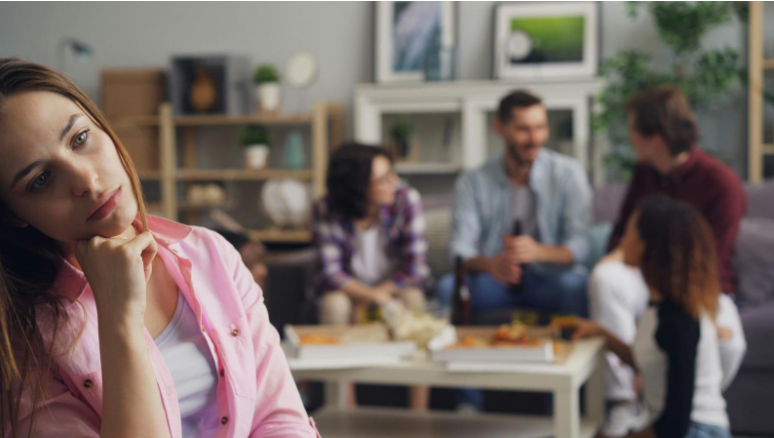.jpg)
Connecting Through Sustainability: How Bunchups Can Help You Start a Local Recycling Group
Start a recycling group with Bunchups. Connect with neighbours, promote sustainability, and build a greener, united community.
In Australia, where sustainability and community spirit go hand in hand, creating a recycling group is more than just an environmental initiative—it’s about forging connections and building a resilient neighbourhood. As waste reduction and sustainable practices become increasingly important in today’s world, many communities are turning to local recycling groups to promote eco-friendly habits and create a sense of unity. In this comprehensive guide, we will explore the various aspects of starting a recycling group, discuss effective strategies for community engagement, and demonstrate how platforms like Bunchups can help you kickstart these initiatives.
Local recycling efforts not only improve environmental outcomes but also enhance the quality of life, support local economies, and build stronger community ties. With statistics showing that communities with high participation in recycling programmes can reduce landfill waste by up to 30% and decrease local pollution, the benefits are clear. This blog will cover everything from the basics of community recycling, educational outreach, and volunteer projects to the modern digital tools that can streamline these processes. Whether you’re new to environmental initiatives or a seasoned community organiser, this guide offers practical advice and inspiration for every step of your journey.
How Bunchups Can Help You Start a Local Recycling Group
Bunchups is a dynamic platform designed to connect people for small, meaningful gatherings, and it can play a pivotal role in launching your recycling group. By leveraging the power of small meetups, Bunchups makes it easy for neighbours with a shared passion for sustainability to come together and take practical steps toward a cleaner environment.
Imagine organising a casual meet-up in your local park where community members discuss ideas for recycling, share best practices, and plan volunteer days to clean up public spaces. Bunchups provides an ideal space for these intimate gatherings, which encourage open dialogue and foster trust among participants. This approach is particularly effective because it emphasises one-on-one or small group interactions over large, impersonal events, making the experience more personal and engaging.
Moreover, the platform helps reduce feelings of isolation by connecting like-minded individuals who are eager to contribute to a sustainable future. By promoting small gatherings that focus on shared interests—whether it’s organising a recycling drive or setting up a community composting workshop—Bunchups subtly cultivates a strong sense of neighbourhood unity. This digital tool acts as a catalyst for sustainable community engagement, providing the framework needed to initiate a local recycling group and nurture its growth. Additionally, you can explore other ways to connect with your neighbours through How to Start and Grow a Homesteading Group and Community or Expert Guide on How to Build a Community in 2025, both of which offer valuable insights on creating sustainable, engaged communities.
How to create a sustainable community recycling group
Creating a sustainable community recycling group requires more than just setting up bins and organising clean-ups. It involves fostering a culture of environmental responsibility, engaging residents through education, and building long-term strategies that integrate recycling into daily life.
Building a Shared Vision for Sustainability
At the heart of every successful recycling group lies a shared vision. Start by engaging your neighbours in conversations about the importance of recycling and the tangible benefits it brings—not only to the environment but also to community health and local economies. For instance, local government statistics reveal that communities with active recycling programmes often experience improved air and water quality, which in turn boosts public health and reduces municipal waste management costs.
This shared vision can be nurtured through community meetings, workshops, and educational events that explain how recycling reduces waste, conserves resources, and helps build a more sustainable future. When residents understand the broader impact of their efforts, they are more likely to commit to long-term recycling habits. In many Australian suburbs, local councils have collaborated with community groups to roll out educational campaigns that demonstrate how even small changes—like properly sorting recyclables—can have significant environmental benefits.
Empowering Your Community Through Education and Volunteerism
Education is critical when it comes to building a sustainable recycling group. Organise workshops that cover practical topics such as proper recycling techniques, the benefits of reducing landfill waste, and how recycled materials contribute to the circular economy. These sessions can be conducted in partnership with local waste management services or environmental organisations, and they often include engaging visuals and interactive demonstrations.
Volunteering is another cornerstone of a sustainable recycling group. When community members actively participate in recycling drives, clean-up events, and local environmental projects, they not only improve their surroundings but also foster a strong sense of unity. For example, organising a monthly community clean-up day where residents gather to collect recyclables from parks and streets can lead to lasting behavioural change. It creates a positive feedback loop—each successful event strengthens the community’s commitment to sustainability and encourages more people to join the recycling group. Learn more through Tackling Local Issues: How Communities Can Come Together for Positive Change, which demonstrates how local groups can unite to solve common problems and create lasting change.
The combination of education and hands-on volunteer work transforms recycling from a mundane task into a shared mission, driving community pride and participation. A sustainable recycling group is built on this foundation of informed, engaged citizens who are motivated by a collective commitment to protecting their environment.
How to start a local recycling group
Starting a local recycling group is a step-by-step process that involves planning, communication, and ongoing community engagement. Below, we explore the key steps involved in launching a recycling group in your neighbourhood.
Assessing Community Needs and Resources
Before initiating your recycling group, conduct an informal survey or hold a community meeting to gauge local interest and identify the specific recycling needs of your neighbourhood. Ask questions like: What materials are most commonly disposed of? Are there existing recycling facilities in the area? What challenges do residents face in recycling effectively?
Understanding these needs helps you tailor your recycling group’s initiatives to the local context. For instance, if your community struggles with low recycling rates due to a lack of accessible recycling bins, one of your first projects could be to liaise with local councils or waste management companies to install more commercial recycling bins in public areas.
Creating a Structured Plan
Once you’ve assessed the community’s needs, develop a structured plan outlining your recycling group’s goals, strategies, and key activities. This plan should include:
- Goals and Objectives: Define clear, measurable goals for your recycling group, such as increasing recycling rates by a certain percentage or reducing landfill waste.
- Outreach and Engagement: Plan how you will reach out to residents. Use community newsletters, local social media groups, and public meetings to spread the word.
- Volunteer Coordination: Establish a system for recruiting and coordinating volunteers. This might include regular meet-ups, online communication channels, or a dedicated volunteer coordinator.
- Partnerships: Consider partnering with local businesses, environmental organisations, and government bodies to secure funding, resources, and additional expertise.
A well-structured plan not only guides your efforts but also helps secure the support of local stakeholders. In many Australian communities, successful recycling groups have emerged from collaborative efforts involving local councils, schools, and community organisations.
Launching and Promoting Your Recycling Group
When it’s time to launch, organise a kick-off event that invites all community members to learn about your recycling group and its objectives. This event can include a presentation on the importance of recycling, interactive sessions on how to sort waste correctly, and opportunities for residents to sign up as volunteers.
Promotion is key—use both traditional and digital media to spread the word. Local newspapers, community bulletin boards, and social media platforms are excellent channels to promote your recycling group. Emphasise success stories and positive impacts, such as cleaner streets and improved community spirit. Engaging visuals and infographics that illustrate the benefits of recycling can also help capture attention.
Remember, building momentum takes time. Celebrate every small victory, and continuously seek feedback from your community to refine your approach. A successful local recycling group evolves based on the needs and inputs of its members.
Integrating Sustainability into Your Community Efforts
While recycling is a critical component of environmental sustainability, it is part of a broader movement toward green living. Integrating other sustainable practices into your community’s daily life can amplify the impact of your recycling group.
Promoting Eco-Friendly Practices
Encourage residents to adopt eco-friendly habits beyond recycling. This can include reducing single-use plastics, embracing composting, and supporting local, sustainable businesses. Organise workshops on topics such as upcycling and repurposing household items to reduce waste further.
Many Australians are already aware of the environmental benefits of sustainable practices, but practical demonstrations make a lasting impression. For example, hosting a DIY upcycling workshop where residents learn to convert old furniture into new, functional pieces can inspire creative solutions to waste. These initiatives not only support environmental sustainability but also strengthen community ties by encouraging collaborative learning and innovation.
Establishing Community Gardens and Green Spaces
Community gardens are an excellent way to promote sustainability while providing a social hub for residents. These gardens can serve multiple purposes: they offer fresh, locally grown produce, reduce the community’s carbon footprint, and create a welcoming space for neighbours to gather and work together.
A community garden project often goes hand in hand with a recycling group. Organic waste from the community can be composted and used to fertilise the garden, closing the loop on waste and resource use. This synergy between recycling and gardening is a practical demonstration of how sustainable practices can be integrated into everyday life, benefiting both the environment and community wellbeing.
Leveraging Digital Tools for Continuous Engagement
In our increasingly digital world, technology offers powerful tools to support sustainability efforts. Beyond facilitating meetups through platforms like Bunchups, digital tools can be used to educate residents, track recycling metrics, and coordinate community projects.
Online forums, mobile apps, and social media groups allow recycling groups to maintain constant communication, share success stories, and mobilise volunteers quickly. For instance, an app that tracks the amount of recycled material collected during community events can motivate residents by providing real-time feedback on their collective impact.
Using digital tools not only streamlines operations but also helps build a transparent and accountable recycling group. This ongoing engagement is crucial for maintaining long-term momentum and ensuring that sustainability remains a priority within the community.
The Benefits of a Local Recycling Group
Establishing a recycling group in your community offers numerous benefits that extend far beyond environmental protection, fostering a sense of connection within your community can be explored further in How to Maintain Neighbourhood Unity: 4 Simple Tips, which offers practical advice on strengthening social ties while working towards a common goal of sustainability. These benefits include:
Enhancing Community Health and Wellbeing
A local recycling group contributes to a cleaner environment, which in turn improves air and water quality. Reduced waste and lower levels of pollution have a direct positive impact on public health, leading to fewer respiratory and other pollution-related illnesses. In addition, community clean-up events and recycling drives foster physical activity and social interaction, both of which contribute to overall well-being.
Stimulating Economic Growth and Job Creation
Recycling initiatives can stimulate local economies by creating jobs in waste management, recycling processing, and sustainable manufacturing. As communities increasingly embrace circular economy principles, the demand for recycled materials rises, providing new opportunities for local businesses. This economic boost is often accompanied by reduced waste management costs for municipalities, creating a win-win scenario for both residents and local governments.
Strengthening Community Bonds
Perhaps the most intangible yet vital benefit of a recycling group is the strengthened sense of community. When residents work together towards a common goal—such as reducing waste and promoting sustainability—they forge deeper connections. This increased social capital can lead to greater collaboration on other community initiatives, making your neighbourhood a more supportive and resilient place to live.
Creating a Legacy for Future Generations
By instilling sustainable practices today, you’re paving the way for a greener, healthier future. Local recycling groups educate younger generations about the importance of environmental stewardship and demonstrate that collective action can lead to meaningful change. This legacy of sustainability and community involvement is one of the most enduring benefits of starting a recycling group.
Additional Strategies for Successful Recycling Groups
To ensure the longevity and success of your recycling group, consider the following strategies:
Collaborative Partnerships
Building relationships with local councils, waste management companies, environmental organisations, and educational institutions can provide your recycling group with additional resources and credibility. These partnerships may offer funding, technical support, and access to broader networks that enhance your group’s impact. In Australia, many successful community recycling programmes are the result of strong collaboration between the public and private sectors.
Regular Monitoring and Feedback
Implement systems to track the progress of your recycling initiatives. Whether it’s through manual data collection at recycling events or using digital tools to monitor participation and waste reduction, regular monitoring allows you to assess the effectiveness of your efforts. Encourage community members to provide feedback so that you can continually improve your programmes. Transparent reporting not only builds trust but also motivates participants by showing tangible results.
Celebrating Successes
Recognise and celebrate the milestones achieved by your recycling group. Whether it’s a significant reduction in landfill waste or a record turnout at a community recycling drive, public celebrations can reinforce the positive impact of your initiatives. Awards, certificates, or even a simple public thank-you can boost morale and encourage continued participation.
Bringing It All Together
Starting a local recycling group is a journey that combines sustainability with community unity. From assessing your community’s needs to leveraging digital tools and forging lasting partnerships, every step plays a vital role in building a successful recycling group. By using platforms like Bunchups, you can facilitate small, meaningful gatherings that drive action and foster deep connections among residents. These meetups provide the ideal environment for sharing ideas, coordinating volunteer efforts, and celebrating the successes of your sustainability initiatives.
The benefits of establishing a recycling group are manifold. Not only does it contribute to environmental preservation by reducing landfill waste and pollution, but it also enhances community health, stimulates local economies, and strengthens the social fabric of your neighbourhood. Moreover, by embedding sustainable practices into daily life, you create a legacy that future generations will inherit—a legacy of environmental stewardship and community collaboration.
For those interested in further resources on sustainability and community engagement in Australia, check out the Australian Government’s official resource page for practical guides, case studies, and tips on building resilient communities.
In summary, whether you are asking yourself, “How to start a local recycling group?” or wondering “, How to create a sustainable community recycling group?” the answers lie in the power of collective action. By embracing education, volunteerism, digital innovation, and a shared vision for sustainability, you can build a recycling group that not only cleans up your neighbourhood but also brings people together in a lasting, meaningful way.
So why wait? Start planning your local recycling group today, reach out to neighbours, and use platforms like Bunchups to organise your first meet-up. Together, we can make a real difference—one recycling group, one sustainable practice, and one community at a time.





